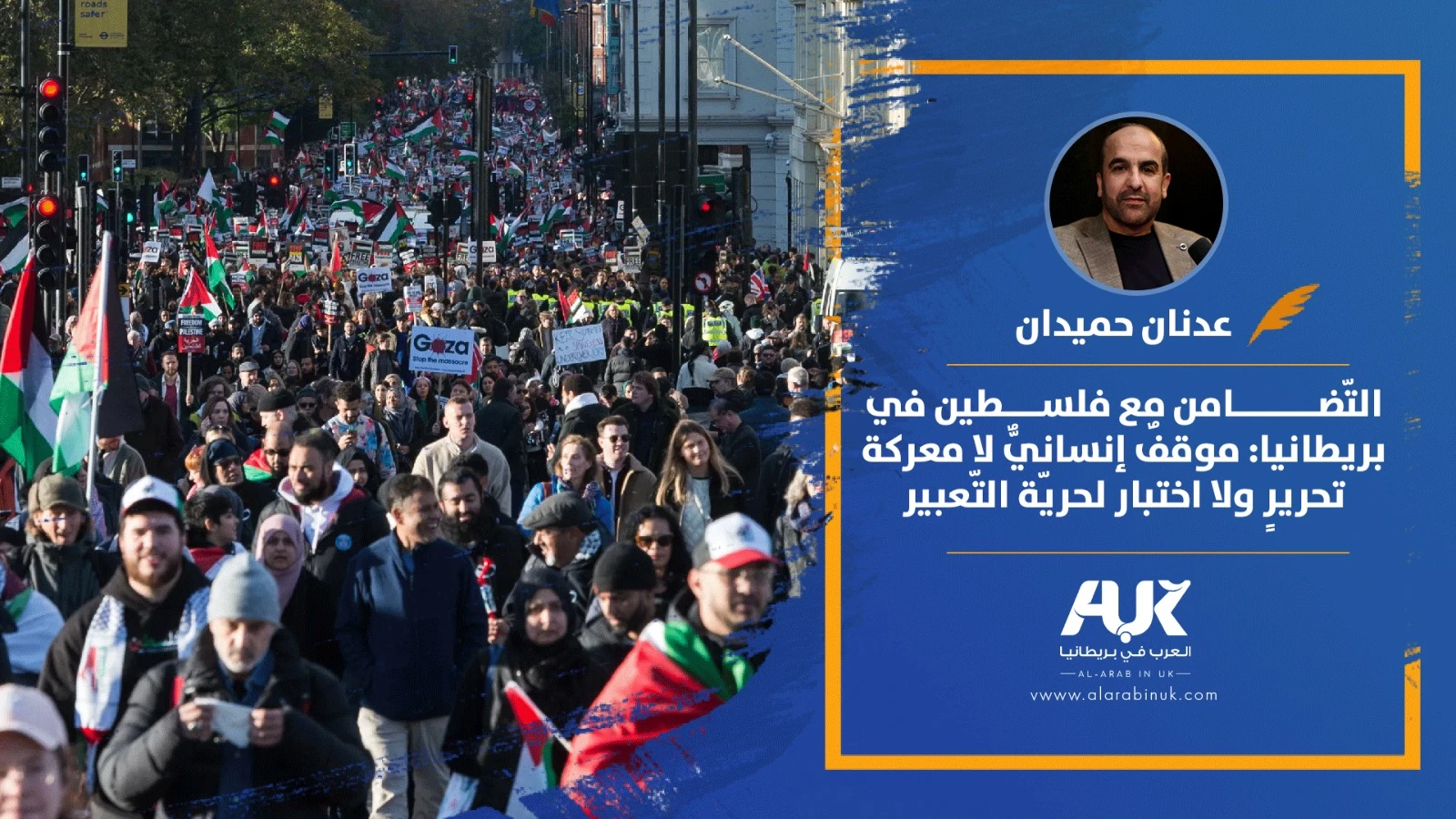Britain’s Enduring Solidarity with Gaza: A Movement of Conscience and Strategy

Since October 2023, Britain has witnessed one of the longest and most sustained waves of popular solidarity in its modern history, a movement born out of outrage at the horrific genocide unfolding in Gaza. Week after week, tens of thousands have taken to the streets, voicing their support for Palestinians enduring a campaign of annihilation, deliberate starvation, and systematic destruction.
Emerging from the heart of British cities and embraced by trade unions, civil society groups, and community organisations, this movement has shown that the moral conscience of ordinary people remains alive, and that the call for justice never fades, even in the face of political pressure and media hostility.
Over the past two years, solidarity actions across the UK have stood out for their discipline, organisation, and commitment to peaceful expression. They have become a model of lawful, principled protest, a testament to how moral conviction can be channelled through nonviolent, democratic means.
Hundreds of thousands of Britons, Arabs, Muslims, and allies from all backgrounds have marched in coordinated demonstrations, working in tandem with local authorities to ensure safety and order. Their message has been clear and consistent: end the genocide, lift the siege, hold war criminals accountable, and uphold international law.
Political Pressure and the Limits of “Lawful” Protest
Yet adherence to the law has not shielded pro-Palestine activism from political interference. The UK Home Office — led by Shabana Mahmood — has sought to impose increasingly restrictive measures on solidarity actions, from curbing slogans to banning Palestinian flags and symbols.
Such measures lack clear legal grounding and are widely seen as the result of mounting political pressure, influenced by staunchly pro-Israel lobbies. They represent an attempt not to uphold public order, but to police dissent.
Resisting these restrictions, however, must be done with strategy, not emotion. The goal is not to confront the system head-on, but to outlast and outthink it, to keep the movement both visible and viable, ensuring that the message of justice continues to reach British institutions, media, and society.
Solidarity, Not Substitution
Supporting Palestine from Britain is an act of solidarity, not a way to liberate Palestine or manage its struggle from here. The role of diaspora communities — particularly within democratic societies — is to preserve the Palestinian narrative, shape public consciousness, and influence political discourse, without crossing boundaries that could jeopardise their efforts through legal or political backlash.
Solidarity work differs from political struggle in its tools and scope. Marches, vigils, and cultural events in Britain are not battlefields; they are moral spaces that remind society of its historical responsibility toward Palestine.
When these spaces are turned into “confrontational fields”, the cause risks losing its legitimacy and impact, handing opponents the pretext to criminalise solidarity itself.
Defending freedom of expression in the UK is both necessary and legitimate, but campaigners must distinguish between general battles for civil liberties and the specific sensitivities surrounding the Palestinian cause within Western political discourse.
Broader debates about free speech can be fought through less politically charged issues; such as environmental justice, social equality, or migration policy. Dragging Palestine into the centre of Britain’s legal and ideological conflicts risks overburdening the movement and exposing it to bans or suppression.
A Strategic and Sustainable Movement
One must note, despite the UK’s often biased foreign policy, the country still allows genuine civic space, provided activism is carried out wisely and within the bounds of the law. The responsibility lies with activists and institutions alike: to maintain a disciplined, lawful, and unified movement that remains resistant to provocation, infiltration, and political exploitation.
Solidarity with Palestine in Britain is a moral stance, not a political project. It is a means to amplify Palestinian voices, not to replace them. Preserving this open civic space is a vital Palestinian interest, one that enables the stories of Gaza, the West Bank, and Jerusalem to reach parliaments, media outlets, and international public opinion without interruption or censorship.
Every form of activism has its place and boundaries. While Palestinians inside their homeland defend their land and dignity through steadfast resistance, those abroad wage a parallel struggle, through advocacy, media, and political engagement, to mobilise the world toward justice.
This complementarity is what gives the Palestinian cause its global resonance, transforming external solidarity into an enduring moral force rather than a passing wave of sympathy.
The task now is to ensure that Palestine remains firmly present in public consciousness, and that solidarity continues to be organised, peaceful, and humane. Only through discipline and strategic clarity can activists protect the integrity of the Palestinian narrative and ensure that its voice, one of justice, humanity, and resilience, remains both pure and powerful.
Read More:
ShortURL ⬇





